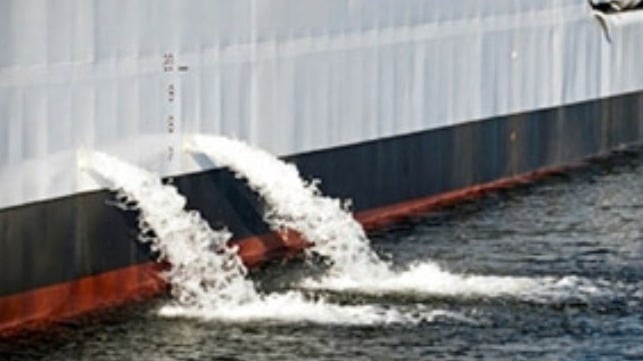EPA Fines MSC and Bulker Over Ballast Water Violations

To raise awareness of the shipowners and operators to the responsibilities under the U.S. Clean Water Act, the Environmental Protection Agency is highlighting that it fined an MSC container ship and a Japanese-managed bulker for failures to carry out the required procedures as it relates to ballast water. The enforcement actions come as new regulations, including stricter rules in California, are being imposed on commercial shipping.
The penalties assessed by the EPA against the two vessels totaled $81,474. They related to inspection, monitoring, and reporting violations in California and Louisiana. The vessels involved were the MSC Aurora containership, a 154,400 dwt boxship built in 2012 and currently operating between China and California. The other vessel is a 39,300 dwt bulker, the Western Durban, built in China in 2015 for the Nisshin Shipping Co. in Japan. The EPA cited both vessels for violating its Vessel General Permit issued under the Clean Water Act.
According to the EPA, vessel self-inspections are required as a means of identifying, for example, sources of spills, broken pollution prevention equipment, or other situations that are or might lead to permit violations. Those inspections are required as a means to allow the owner/operator to correct the situation as soon as possible.
Self-inspections are required by the permit so that the owner or operator can diagnose and fix problems to remain compliant with the permit. Because the Clean Water Act relies on self-reporting of permittees, inspection, monitoring, and reporting violations are serious and undermine the Vessel General Permit program.
“Vessels that do not comply with their CWA permits can have significant environmental impacts to our waterways, including the introduction of invasive species,” said Amy Miller, EPA’s Enforcement and Compliance Assurance Division Director for the country’s Pacific Southwest region. “Failure to comply with the Vessel General Permit requirements can result in significant penalties.”
From November 2016 to July 2021, the EPA reports the MSC Aurora failed to conduct required routine visual inspections for 11 voyages to the ports of Long Beach, Los Angeles, and Oakland. The MSC Aurora also failed to submit timely annual reports to EPA for 2016 into 2019. For these multiple inspection and reporting violations, Mediterranean Shipping Company agreed to pay a civil penalty of $66,474 under a settlement with the EPA.
The bulker Western Durban was fined for failing to perform monthly functionality monitoring in August 2017 and annual calibration of the ballast water treatment system before discharging ballast water at the Port of New Orleans. The ship also failed to conduct required biological monitoring after the discharge. EPA assessed penalties totaling $15,000 to the Tokyo-based Victoria Ship Management company.
Invasive species are a persistent problem in U.S. coastal and inland waters that EPA reports. Improper management of ballast water can introduce invasive species or damage local species by disrupting habitats and increasing competitive pressure. Discharges of other waste streams regulated by the VGP (e.g., graywater, exhaust gas scrubber water, lubricants, etc.) can cause toxic impacts to local species or contain pathogenic organisms.

that matters most
Get the latest maritime news delivered to your inbox daily.
The violations were discovered in February 2020, as part of EPA and the U.S. Coast Guard on-site visual inspections of the MSC Aurora and the Western Durban at the Ports of Long Beach and Los Angeles.
